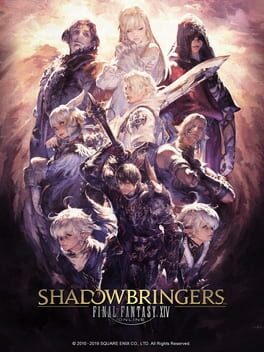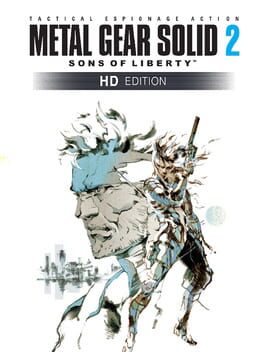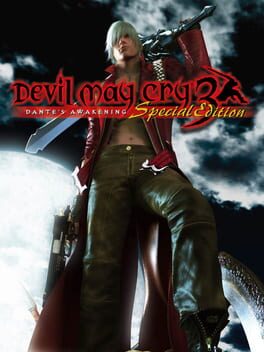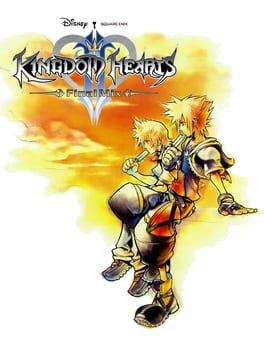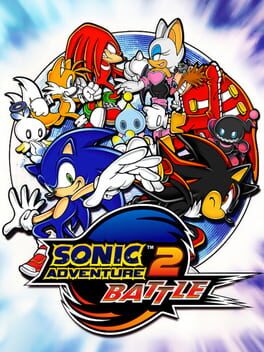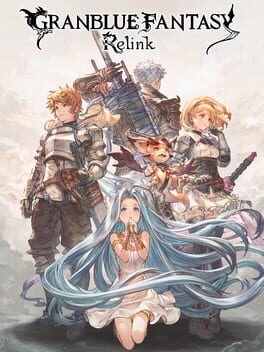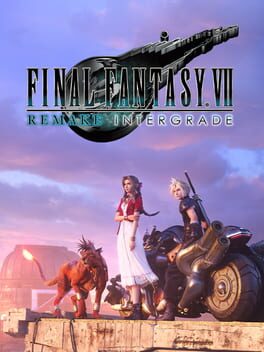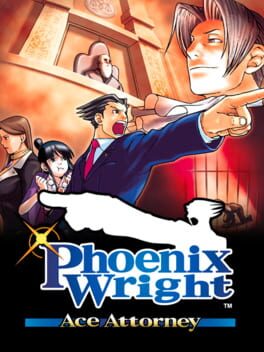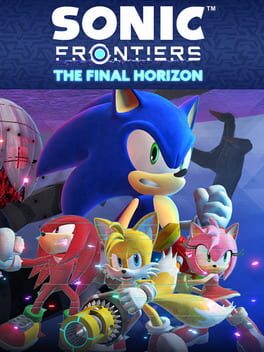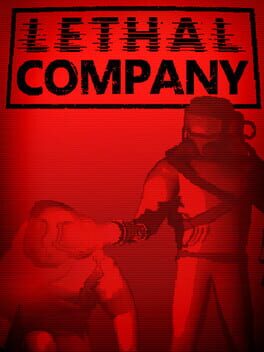Bio
Welcome to Balan Kinoland
Welcome to Balan Kinoland
Badges

Donor
Liked 50+ reviews / lists

GOTY '23
Participated in the 2023 Game of the Year Event

Best Friends
Become mutual friends with at least 3 others

GOTY '22
Participated in the 2022 Game of the Year Event

3 Years of Service
Being part of the Backloggd community for 3 years

Liked
Gained 10+ total review likes

N00b
Played 100+ games

Noticed
Gained 3+ followers
Favorite Games
167
Total Games Played
004
Played in 2024
032
Games Backloggd
Recently Played See More
Recently Reviewed See More
This review contains spoilers
I've played Persona 3 before, but it was a really long time ago-- over ten years now. My memory of the game was a bit scattered, so playing Reload felt like I was playing Persona 3 for the first time all over again.
At its core, this is still Persona 3, just with additions that enhance the game rather than detracting from it. There's new activities at night, new shops, hang out events with SEES, and even new social links (in everything but name) with the male party members, and they are some of the best party member "social links'' in the series, because they are able to play off of the main story. There's no weird sense of disconnect like some of the other party member social links in the series. Shinji's link episodes are especially a highlight, and it does so much to uplift that section of the narrative to even greater heights than before.
Tartarus was noted as a pain point of the original game. Portable's approach to this was changing the battle system and adding some new ways of dealing with fatigue. In Reload, while direct control is here and the fatigue system is back, the part that actually made Tartarus boring in the original, the dungeon crawling, is addressed. There's tons of new gimmicks, new side areas, and new area layouts. At its core, Tartarus is still the same randomized dungeon crawler it was in the original, but instead of being thrown away for something more like Persona 4 or 5, Atlus saw the value in the original concept and decided to expand on it.
On a Merciless playthrough, the game starts out quite difficult. I had to carefully manage my SP, and think carefully about fusing due to a lack of money for summoning from the compendium. I finished the first block of Tartarus in one day, but it took a great deal of agonizing over resource management. This, I thought, was a perfect solution to removing stamina. However, this was really only true for the first block. When you get Akihiko, that's another party member, which is another pool of SP to use as a resource. By now, you probably have plenty of SP restoring items, and two of your party members use physical skills, which cost HP and not SP, which is a much easier resource to recoup as healing items are plentiful. Then in the next block, you get Mitsuru, Fuuka and Theurgies, and the game becomes the easiest it gets for a while, because the game is just constantly throwing free things at you so you never have to worry about resources. So, resource management, while starting off strong, becomes a disappointment unfortunately, and it's something I hope is addressed in a later Persona game.
In terms of the actual battle system, while this is building off of Persona 5 Royal, it feels like a more reasonable version of it. While technical hits are gone, you can get something similar by having Mitsuru in your party, creating synergy between phys skills and status effects with your critical hit being increased if attacking an enemy inflicted with an ailment. Traits are back, sort of, but are tied to characters rather than Personas. Baton Pass, now renamed Shift, is actually nerfed, but if you want perks like boosting your attack after a Shift like how it worked in Persona 5 Royal, that is now a separate ability that has to be inherited in Persona fusion, or equipped via an accessory. Theurgies are essentially what Showdowns were in Royal, but now are tied to a gauge with per-character mechanics for building gauge, no longer being random, and you actually lose gauge if a character gets KO'd.
Navi assists are also not quite as random, and not quite as OP. A lot of what Futaba would just do on her own, randomly, are now skills you can freely cast with Fuuka, but cost SP. In-battle assists are now tied to Fuuka's theurgy gauge, and if you know what you're doing, you can actually manipulate RNG to get the desired buffs from her. If you want healing, save the assist for when your HP/SP gets low. If you want buffs, make sure you're at full HP first. It's a very cool, useful system compared to P4 and P5 where you just pray your Navi will do something useful sometimes.
While the resource management aspect is lacking, I did find myself blindsided by some of the boss fights in Merciless. The first full moon operation is insanely tough, and some of the Monad fights are just brutal. Elizabeth, thankfully, lives up to the nightmare that she was in the original game. Ailments in particular, are just insanely brutal now and bring a lot of the challenge, while in older Persona games they were pretty whatever. (Aside from the occasional charm moment...)
I don't think there's much I can say about the story that hasn't already been said by others, and I think the game sends its message pretty clearly. So, I think I'll talk about some of the changes. The new English VA is an improvement across the board. While there were some good actors in the original, the direction is a bit stilted, and it felt like actors were sometimes missing context, while in the worst cases of the original dub, there were some pretty clear miscasts, some even hurting the reputations of certain characters (Fuuka...). While I think some of those old actors are much better now and would've killed it in a redub, I think the new cast, and new acting, elevates the story to new heights and does a much better job of matching the emotion of the original japanese performances.
I know a lot of people are upset about the lack of a FeMC, I really didn't care and I'll explain why. The FeMC changes too much about the game. Her route completely changes too much of the story, the artistic identity of the game, and there are ways that the devs would have been limited if they were to bring her back as she was in Portable. The Link episodes likely wouldn't have existed and we would have lost some amazing writing, and I vastly prefer what we got in Reload over what some of Portable does, such as how it changed the ending or how needlessly, worryingly fanservicey it got at times (Ken....), or the uncomfortable implications of how much it ties to gender, like the OST changes and the UI...are girls not allowed to like rap, or the color blue? It just feels gross and ignorant to the real world. I would be happy to have a FeMC in future Personas, but please, just handle it like a normal, rational RPG, you don't have to change the entire game top to bottom to account for a different gender. Persona already has an audience of girls that like it for what it is, throwing everything about the male MC away to be changed so heavily is a total misunderstanding of your audience. I know my perspective might seem biased as a man, but I have never really played these games for the self-insert aspect, I see the protagonist as their own, separate character with a distinct identity. Roleplaying =/= self-inserting.
The new Strega elements were pretty cool. I think Jin and Takaya have a much more interesting dynamic now, with them being shown to use Shift just like your own party. Takaya as a villain, while not changed that much really, is just a lot cooler now, while in the original I felt he was a bit forgettable. Chidori is a highlight just like in the original. Interestingly, the FES change of being able to revive Chidori is kept. I actually didn't really mind this, there are still consequences of what happened with her having amnesia, and for a game filled with so much tragedy, I think it's okay for SEES to get just one W for once. Also, if you read into Junpei being inspired by Cloud, I then find the dynamic with Chidori to be an interesting reflection of Cloud and Aerith, and therefore being able to revive Chidori reminds me of some of the old video game rumors of being able to revive Aerith if you do some ridiculous stuff -- so in Reload, having to do some fairly convoluted things to bring Chidori back is a cool secret, something that used to be really common in video games. Looking back at FES, I wonder if there were similar rumors in the Japanese fanbase about being able to bring Chidori back, and the ability to do so being added in FES as an answer to that?
Ikutsuki was a character that unfortunately disappointed me. I was hoping that maybe he'd get some Link episodes, or hangout events, but he got pretty much nothing. For a game that is all about fleshing out underdeveloped elements, this felt like a big oversight to me. Ikutsuki, seeing himself as a savior, in his own twisted little mind I do believe he had some sort of fatherly affection for SEES, and I do think he genuinely, at least from his warped perspective, had good intentions for SEES, which is why he shows disappointment when they don't understand why he would want to bring about the Fall. I think this betrayal would have hit a lot harder if we actually got to spend time with him as a friend. The Persona series often has this trope of a character with a dorky side betraying you, like with Adachi and Akechi. While we got to spend time with those characters in those games, especially in their re-releases, we didn't get much with Ikutsuki.
Persona 3 is a game about life and death, and Reload feels like, after a long parting, looking through a picture book and having vivid memories of the life of a dear friend, wondering what sort of life they could have lived if things went a little differently in their life. But at the end of the day, they are still who they were, no matter how long it's been. Life has infinite potential, but with death, while that potential ends, a memory is created that lives on to inform everyone that life touched. As long as their memory is alive, they can still live on and inspire new people on their own journeys, and through that they are never truly gone. I think P-Studio has learned a lot from revisiting its old work, with Reload being the culmination of everything in modern Persona works, and just like 3 it will inform future games and become the new standard to live up to. It's not a perfect, flawless game, but idgaf 10/10 BABYBABYYYYYYYYYYY
At its core, this is still Persona 3, just with additions that enhance the game rather than detracting from it. There's new activities at night, new shops, hang out events with SEES, and even new social links (in everything but name) with the male party members, and they are some of the best party member "social links'' in the series, because they are able to play off of the main story. There's no weird sense of disconnect like some of the other party member social links in the series. Shinji's link episodes are especially a highlight, and it does so much to uplift that section of the narrative to even greater heights than before.
Tartarus was noted as a pain point of the original game. Portable's approach to this was changing the battle system and adding some new ways of dealing with fatigue. In Reload, while direct control is here and the fatigue system is back, the part that actually made Tartarus boring in the original, the dungeon crawling, is addressed. There's tons of new gimmicks, new side areas, and new area layouts. At its core, Tartarus is still the same randomized dungeon crawler it was in the original, but instead of being thrown away for something more like Persona 4 or 5, Atlus saw the value in the original concept and decided to expand on it.
On a Merciless playthrough, the game starts out quite difficult. I had to carefully manage my SP, and think carefully about fusing due to a lack of money for summoning from the compendium. I finished the first block of Tartarus in one day, but it took a great deal of agonizing over resource management. This, I thought, was a perfect solution to removing stamina. However, this was really only true for the first block. When you get Akihiko, that's another party member, which is another pool of SP to use as a resource. By now, you probably have plenty of SP restoring items, and two of your party members use physical skills, which cost HP and not SP, which is a much easier resource to recoup as healing items are plentiful. Then in the next block, you get Mitsuru, Fuuka and Theurgies, and the game becomes the easiest it gets for a while, because the game is just constantly throwing free things at you so you never have to worry about resources. So, resource management, while starting off strong, becomes a disappointment unfortunately, and it's something I hope is addressed in a later Persona game.
In terms of the actual battle system, while this is building off of Persona 5 Royal, it feels like a more reasonable version of it. While technical hits are gone, you can get something similar by having Mitsuru in your party, creating synergy between phys skills and status effects with your critical hit being increased if attacking an enemy inflicted with an ailment. Traits are back, sort of, but are tied to characters rather than Personas. Baton Pass, now renamed Shift, is actually nerfed, but if you want perks like boosting your attack after a Shift like how it worked in Persona 5 Royal, that is now a separate ability that has to be inherited in Persona fusion, or equipped via an accessory. Theurgies are essentially what Showdowns were in Royal, but now are tied to a gauge with per-character mechanics for building gauge, no longer being random, and you actually lose gauge if a character gets KO'd.
Navi assists are also not quite as random, and not quite as OP. A lot of what Futaba would just do on her own, randomly, are now skills you can freely cast with Fuuka, but cost SP. In-battle assists are now tied to Fuuka's theurgy gauge, and if you know what you're doing, you can actually manipulate RNG to get the desired buffs from her. If you want healing, save the assist for when your HP/SP gets low. If you want buffs, make sure you're at full HP first. It's a very cool, useful system compared to P4 and P5 where you just pray your Navi will do something useful sometimes.
While the resource management aspect is lacking, I did find myself blindsided by some of the boss fights in Merciless. The first full moon operation is insanely tough, and some of the Monad fights are just brutal. Elizabeth, thankfully, lives up to the nightmare that she was in the original game. Ailments in particular, are just insanely brutal now and bring a lot of the challenge, while in older Persona games they were pretty whatever. (Aside from the occasional charm moment...)
I don't think there's much I can say about the story that hasn't already been said by others, and I think the game sends its message pretty clearly. So, I think I'll talk about some of the changes. The new English VA is an improvement across the board. While there were some good actors in the original, the direction is a bit stilted, and it felt like actors were sometimes missing context, while in the worst cases of the original dub, there were some pretty clear miscasts, some even hurting the reputations of certain characters (Fuuka...). While I think some of those old actors are much better now and would've killed it in a redub, I think the new cast, and new acting, elevates the story to new heights and does a much better job of matching the emotion of the original japanese performances.
I know a lot of people are upset about the lack of a FeMC, I really didn't care and I'll explain why. The FeMC changes too much about the game. Her route completely changes too much of the story, the artistic identity of the game, and there are ways that the devs would have been limited if they were to bring her back as she was in Portable. The Link episodes likely wouldn't have existed and we would have lost some amazing writing, and I vastly prefer what we got in Reload over what some of Portable does, such as how it changed the ending or how needlessly, worryingly fanservicey it got at times (Ken....), or the uncomfortable implications of how much it ties to gender, like the OST changes and the UI...are girls not allowed to like rap, or the color blue? It just feels gross and ignorant to the real world. I would be happy to have a FeMC in future Personas, but please, just handle it like a normal, rational RPG, you don't have to change the entire game top to bottom to account for a different gender. Persona already has an audience of girls that like it for what it is, throwing everything about the male MC away to be changed so heavily is a total misunderstanding of your audience. I know my perspective might seem biased as a man, but I have never really played these games for the self-insert aspect, I see the protagonist as their own, separate character with a distinct identity. Roleplaying =/= self-inserting.
The new Strega elements were pretty cool. I think Jin and Takaya have a much more interesting dynamic now, with them being shown to use Shift just like your own party. Takaya as a villain, while not changed that much really, is just a lot cooler now, while in the original I felt he was a bit forgettable. Chidori is a highlight just like in the original. Interestingly, the FES change of being able to revive Chidori is kept. I actually didn't really mind this, there are still consequences of what happened with her having amnesia, and for a game filled with so much tragedy, I think it's okay for SEES to get just one W for once. Also, if you read into Junpei being inspired by Cloud, I then find the dynamic with Chidori to be an interesting reflection of Cloud and Aerith, and therefore being able to revive Chidori reminds me of some of the old video game rumors of being able to revive Aerith if you do some ridiculous stuff -- so in Reload, having to do some fairly convoluted things to bring Chidori back is a cool secret, something that used to be really common in video games. Looking back at FES, I wonder if there were similar rumors in the Japanese fanbase about being able to bring Chidori back, and the ability to do so being added in FES as an answer to that?
Ikutsuki was a character that unfortunately disappointed me. I was hoping that maybe he'd get some Link episodes, or hangout events, but he got pretty much nothing. For a game that is all about fleshing out underdeveloped elements, this felt like a big oversight to me. Ikutsuki, seeing himself as a savior, in his own twisted little mind I do believe he had some sort of fatherly affection for SEES, and I do think he genuinely, at least from his warped perspective, had good intentions for SEES, which is why he shows disappointment when they don't understand why he would want to bring about the Fall. I think this betrayal would have hit a lot harder if we actually got to spend time with him as a friend. The Persona series often has this trope of a character with a dorky side betraying you, like with Adachi and Akechi. While we got to spend time with those characters in those games, especially in their re-releases, we didn't get much with Ikutsuki.
Persona 3 is a game about life and death, and Reload feels like, after a long parting, looking through a picture book and having vivid memories of the life of a dear friend, wondering what sort of life they could have lived if things went a little differently in their life. But at the end of the day, they are still who they were, no matter how long it's been. Life has infinite potential, but with death, while that potential ends, a memory is created that lives on to inform everyone that life touched. As long as their memory is alive, they can still live on and inspire new people on their own journeys, and through that they are never truly gone. I think P-Studio has learned a lot from revisiting its old work, with Reload being the culmination of everything in modern Persona works, and just like 3 it will inform future games and become the new standard to live up to. It's not a perfect, flawless game, but idgaf 10/10 BABYBABYYYYYYYYYYY
The first game of the Ace Attorney series, a total banger and so much better than I expected. I've always heard so much about Ace Attorney through years of memes and crossovers like Marvel vs Capcom 3, but somehow was not quite prepared for what I was getting myself into.
Ace Attorney is a VN originally released on GBA, and it certainly has its restraints, whether from technical limitations or simply being the first in a series, the devs were still trying to figure out the conventions of this series and it shows in some ways. The trials are written and designed in a way where the game leads you to the right answer, to the point by the end I had figured out its patterns -- if you're being asked if you REALLY want to keep doing something, you almost always want to keep doing it. If you're being asked if you have evidence, even if you don't think you do, you should claim you do anyway, and there are so few pieces of evidence on hand it's typically quite easy to deduce which one you're supposed to use just by rule of elimination. That said, despite the game being quite easy, it's still so satisfying to go through these cases. The characters are written with such distinct manners of speech, the animations are timelessly captivating, the "objection", "hold it" voice lines never get old the music is just so iconic as well -- Ace Attorney perfected the formula for this type of game from the jump. It's quite easy to see why this game has endured for so long.
To talk about the writing, I really do love the story and the cast of characters.
Phoenix Wright is such an instantly captivating protagonist -- fresh out of law school, he's under all sorts of pressure, his first case is defending his best friend in a murder case, he has little experience and is flying by the seat of his pants, everyone around him has all the answers and he's struggling to keep up. However, despite all this pressure, he is fiercely loyal -- to his clients, to his friends, to his principles, and that's such an admirable quality. He's also such a funny guy, he plays the role of a straight man in a world full of eccentric people quite well. I often found myself relating, and laughing at his disbelief in the insane things happening around him.
The deuteragonist, Maya is with you for 90% of the game. Your second case is defending her in a murder case, and she garners the players sympathy from the get go. She goes through one of the most horrible things, being accused of murdering her own sister, when she's already quite a sheltered person with little experience outside of her home. It's easy to feel sorry for, and attached to her in this case. After you defend her innocence, she sticks around as a supporting character, and often helps Wright as a spirit medium. I thought this spirit medium element, while made with sweet intentions writing wise, it was a little weird to see how her design changes when she's speaking through her sister and it definitely took me out of it at first. But I appreciated seeing how Wright and Maya bonded over their shared respect for Mia, who still watched over them even after passing. As a deuteragonist, Maya brings a level of hope and optimism to the story when things are at their lowest. When Wright feels like he hits an impossible road block, Maya is always there to pick him up and show him that there is always a way to move forward. Even though she has no legal experience, and is not very good at being a spirit medium, she does everything in her power to see a case through and help prove someone's innocence, just like Wright did for her. She gets put on trial, arrested, tazed, but never allows herself to lose her determination. She is an integral part to the core of this game's themes and story.
Miles Edgeworth was a character who also surprised me. I expected a more cold, stoic character. And while he can fill that role, there's a human side to him that I really didn't expect. In the latter half of the game, he gets deconstructed so thoroughly -- at one point there is an earthquake and in response he has a panic attack and becomes completely impossible to talk to. Yet, the game never plays this off for laughs like a more lowbrow story might. It's treated quite seriously and explored fully, in these sorts of games that would typically be comedy relief, and I was relieved to see this treated with this level of care. Edgeworth while opposite to Wright in many ways, such as his pessimism, his nihilism, even his job as a prosecutor, or his color scheme, also reflects Wright. He is so compassionate that it destroys him, the thought that he played a part in letting a murderer in his childhood get away destroyed him so thoroughly that he spent 15 years prosecuting, even going as far as forgery and shady deals. He is so loyal to people he was friends with in only the fourth grade that he doesn't want Wright to defend him even when nobody else will. He is such a perfectly written rival character, I can see why he has so many fans after playing this.
The side characters are all quite memorable and distinct as well, of course. It really did impress me just how much variety there was in character design and speech mannerisms. Everyone, no matter how brief their appearance is, leaves their mark in their own way.
As for the themes, considering the context of this game, developed by a Japanese developer and the history of the legal system in Japan, along with the game taking place in Japan in the original release, there's a counterculture element to this game that may be hidden for those who don't know much about Japan's legal system. In Japan, the conviction rate is 99%. That is staggering. There is some commentary that could potentially be observed here -- it's often pointed out how some of the prosecutors in this game will forge evidence, some will even try to intimidate you outside of the courtroom, one even outright assaults you. It's interesting to see just how far Capcom takes this idea of corruption, to the point where the game ends on a trial exposing a cover up where a prosecutor murdered a defense attorney. Even outside of the prosecutors, there's also a really interesting case that shows how much control a corporation in the game has over the courtroom earlier in the story. To put you in the pilot seat of someone who has all of these impossible odds against him reflects an optimistic theme, that no matter how bad a system can get, you can still oppose it and win, even in a system where your odds are less than 1% of victory.
Ace Attorney is a VN originally released on GBA, and it certainly has its restraints, whether from technical limitations or simply being the first in a series, the devs were still trying to figure out the conventions of this series and it shows in some ways. The trials are written and designed in a way where the game leads you to the right answer, to the point by the end I had figured out its patterns -- if you're being asked if you REALLY want to keep doing something, you almost always want to keep doing it. If you're being asked if you have evidence, even if you don't think you do, you should claim you do anyway, and there are so few pieces of evidence on hand it's typically quite easy to deduce which one you're supposed to use just by rule of elimination. That said, despite the game being quite easy, it's still so satisfying to go through these cases. The characters are written with such distinct manners of speech, the animations are timelessly captivating, the "objection", "hold it" voice lines never get old the music is just so iconic as well -- Ace Attorney perfected the formula for this type of game from the jump. It's quite easy to see why this game has endured for so long.
To talk about the writing, I really do love the story and the cast of characters.
Phoenix Wright is such an instantly captivating protagonist -- fresh out of law school, he's under all sorts of pressure, his first case is defending his best friend in a murder case, he has little experience and is flying by the seat of his pants, everyone around him has all the answers and he's struggling to keep up. However, despite all this pressure, he is fiercely loyal -- to his clients, to his friends, to his principles, and that's such an admirable quality. He's also such a funny guy, he plays the role of a straight man in a world full of eccentric people quite well. I often found myself relating, and laughing at his disbelief in the insane things happening around him.
The deuteragonist, Maya is with you for 90% of the game. Your second case is defending her in a murder case, and she garners the players sympathy from the get go. She goes through one of the most horrible things, being accused of murdering her own sister, when she's already quite a sheltered person with little experience outside of her home. It's easy to feel sorry for, and attached to her in this case. After you defend her innocence, she sticks around as a supporting character, and often helps Wright as a spirit medium. I thought this spirit medium element, while made with sweet intentions writing wise, it was a little weird to see how her design changes when she's speaking through her sister and it definitely took me out of it at first. But I appreciated seeing how Wright and Maya bonded over their shared respect for Mia, who still watched over them even after passing. As a deuteragonist, Maya brings a level of hope and optimism to the story when things are at their lowest. When Wright feels like he hits an impossible road block, Maya is always there to pick him up and show him that there is always a way to move forward. Even though she has no legal experience, and is not very good at being a spirit medium, she does everything in her power to see a case through and help prove someone's innocence, just like Wright did for her. She gets put on trial, arrested, tazed, but never allows herself to lose her determination. She is an integral part to the core of this game's themes and story.
Miles Edgeworth was a character who also surprised me. I expected a more cold, stoic character. And while he can fill that role, there's a human side to him that I really didn't expect. In the latter half of the game, he gets deconstructed so thoroughly -- at one point there is an earthquake and in response he has a panic attack and becomes completely impossible to talk to. Yet, the game never plays this off for laughs like a more lowbrow story might. It's treated quite seriously and explored fully, in these sorts of games that would typically be comedy relief, and I was relieved to see this treated with this level of care. Edgeworth while opposite to Wright in many ways, such as his pessimism, his nihilism, even his job as a prosecutor, or his color scheme, also reflects Wright. He is so compassionate that it destroys him, the thought that he played a part in letting a murderer in his childhood get away destroyed him so thoroughly that he spent 15 years prosecuting, even going as far as forgery and shady deals. He is so loyal to people he was friends with in only the fourth grade that he doesn't want Wright to defend him even when nobody else will. He is such a perfectly written rival character, I can see why he has so many fans after playing this.
The side characters are all quite memorable and distinct as well, of course. It really did impress me just how much variety there was in character design and speech mannerisms. Everyone, no matter how brief their appearance is, leaves their mark in their own way.
As for the themes, considering the context of this game, developed by a Japanese developer and the history of the legal system in Japan, along with the game taking place in Japan in the original release, there's a counterculture element to this game that may be hidden for those who don't know much about Japan's legal system. In Japan, the conviction rate is 99%. That is staggering. There is some commentary that could potentially be observed here -- it's often pointed out how some of the prosecutors in this game will forge evidence, some will even try to intimidate you outside of the courtroom, one even outright assaults you. It's interesting to see just how far Capcom takes this idea of corruption, to the point where the game ends on a trial exposing a cover up where a prosecutor murdered a defense attorney. Even outside of the prosecutors, there's also a really interesting case that shows how much control a corporation in the game has over the courtroom earlier in the story. To put you in the pilot seat of someone who has all of these impossible odds against him reflects an optimistic theme, that no matter how bad a system can get, you can still oppose it and win, even in a system where your odds are less than 1% of victory.
PEAK.
